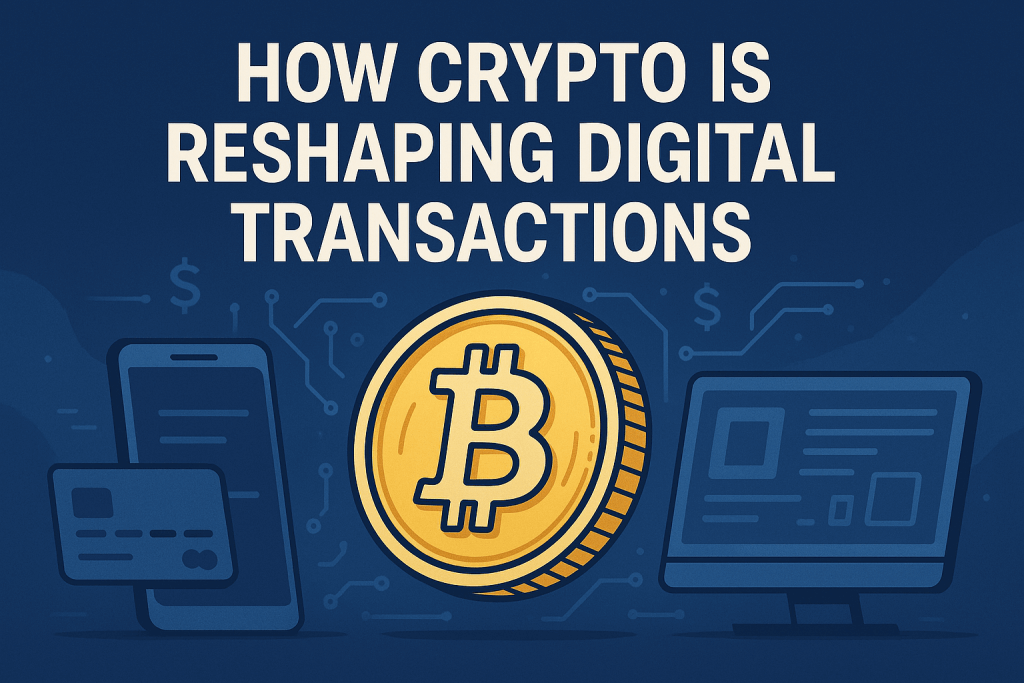Cryptocurrency has stormed onto the scene, flipping the script on how people handle money online. It’s not just a buzzword anymore—digital coins like Bitcoin and Ethereum are shaking up transactions, ditching middlemen, and promising lightning-fast exchanges. This shift isn’t slowing down either; it’s carving out a bold new path for finance. Wondering how it all works and what it means for everyday life? Let’s unpack it step by step.
The Rise of Cryptocurrency in Everyday Use
Digital wallets hum with activity as more folks swap traditional cash for crypto. Businesses—big and small—now accept it, from coffee shops to tech giants. People love the speed; a payment zips across borders in minutes, not days. That convenience is hard to beat when wiring money through banks feels like waiting for a snail to sprint. Security grabs attention here, too. Blockchain, the tech powering crypto, locks every deal in an uncrackable digital vault. Fraudsters scratch their heads trying to mess with it, while users sleep easy knowing their funds stay safe. Compare that to old-school credit cards, where hacks happen too often, and crypto starts looking like a fortress.
Cost-cutting fuels the trend further. Banks and payment processors shave fees off every swipe or transfer, but crypto slashes those to pennies—or nothing. Small businesses cheer, keeping more profit in their pockets. For regular people sending cash overseas, it’s a lifeline, dodging hefty charges that eat into hard-earned money. Even skeptics can’t ignore the buzz. Adoption keeps climbing as crypto sheds its “tech geek only” label. Regular folks dip their toes in, buying a fraction of a coin or tipping online creators. It’s not replacing dollars yet, but it’s weaving into daily life, proving it’s more than a passing fad.
Decentralization and Its Impact on Transactions
Crypto kicks central control to the curb. No bank, no government—just a network of users running the show. Blockchain spreads the power out, letting anyone with a computer join in to verify deals. That setup cuts red tape and hands control back to individuals, a big win for anyone tired of faceless institutions calling the shots. Speed gets a massive boost from this. Traditional systems lean on layers of approval—banks, regulators, you name it—grinding things to a crawl. Crypto skips the line, settling trades in real-time. Imagine sending cash to a friend halfway around the world and seeing it land before your coffee cools. That’s the reality now.
Trust shifts gears, too. Instead of banking on a company’s word, people rely on code—open, transparent, and tamper-proof. Everyone sees the ledger; no one fudges it. For industries like real estate or supply chains, where shady deals can slip through, this clarity builds confidence and keeps players honest. Downsides pop up, though. Decentralization sounds slick, but it leaves newcomers dazed—wallets, keys, and nodes aren’t exactly user-friendly yet. Still, the trade-off is freedom. People pick crypto to dodge overreach, whether it’s nosy governments or greedy fees, and that’s a pull that’s tough to resist.
Crypto’s Role in Global Commerce
Borders blur when crypto enters the game. Companies ship payments to suppliers overseas without currency swaps or exchange rate headaches. A manufacturer in Japan pays a designer in Brazil, and the deal’s done in seconds—clean, simple, and no bank playing gatekeeper. Global trade feels the jolt as friction melts away. E-commerce rides the wave, too. Online stores plug into crypto gateways, letting customers pay with digital coins. Shoppers dodge card fees, and sellers skip chargeback scams. Platforms like Wirex Academy even roll out resources to smooth the ride, blending wallets and cards for seamless spending. It’s a win-win that’s catching fire.
Microtransactions shine brighter with crypto. Content creators cash in on tiny tips—think cents, not dollars—from fans worldwide. Old payment systems choke on these small fries, but crypto handles them like a champ. Musicians, writers, and gamers thrive, turning passion into profit without a middleman skimming the top. Volatility still rattles some cages. Prices swing wild, and a coin worth a grand today might tank tomorrow. Smart businesses hedge bets or convert to cash fast, but the risk lingers. Even so, the perks—speed, reach, and cost—keep commerce hooked, pushing crypto deeper into the global market.
Enhancing Security and Privacy
Crypto locks down transactions like a digital bouncer. Every move gets etched into the blockchain, sealed with cryptography that hackers can’t crack. Compare that to bank databases—juicy targets for breaches—and crypto’s edge shines. People sleep better knowing their cash won’t vanish in the next big leak. Privacy takes center stage, too. Users dodge handing over their life stories just to pay for something. No names, no addresses—just a string of code swapping values. For folks in shaky regimes or prying markets, that anonymity isn’t just nice—it’s a shield against overreach.
Scams still lurk, though. Phishing tricks and fake wallets snag the careless, and lost keys mean lost funds—no customer service to bail you out. Education plugs that gap; savvy users dodge traps and keep their stash secure. The tech’s tight, but human slip-ups need watching. Businesses lean in hard. Retailers and startups tout crypto’s safety to win trust, especially with privacy-hungry customers. It’s not foolproof—nothing is—but it flips the script on leaky systems. As tools evolve, that security gap widens, making crypto a go-to for cautious spenders.
Conclusion
Cryptocurrency isn’t just tweaking digital transactions—it’s rewriting the rulebook. From everyday payments to global trade, it delivers speed, security, and control that old systems can’t touch. Decentralization drives it, privacy protects it, and innovation propels it forward. Sure, hurdles remain, but the shift’s undeniable. Embracing this wave means rethinking money itself, paving the way for a smarter, faster financial future that’s already knocking at the door.
Sources:
https://www.bitget.com/news/detail/12560604627392
https://qz.com/cryptocurrency-blockchain-bitcoin-global-finance-1851763883
Cassia Rowley is the mastermind behind advertising at The Bad Pod. She blends creativity with strategy to make sure ads on our site do more than just show up—they spark interest and make connections. Cassia turns simple ad placements into engaging experiences that mesh seamlessly with our content, truly capturing the attention of our audience.


